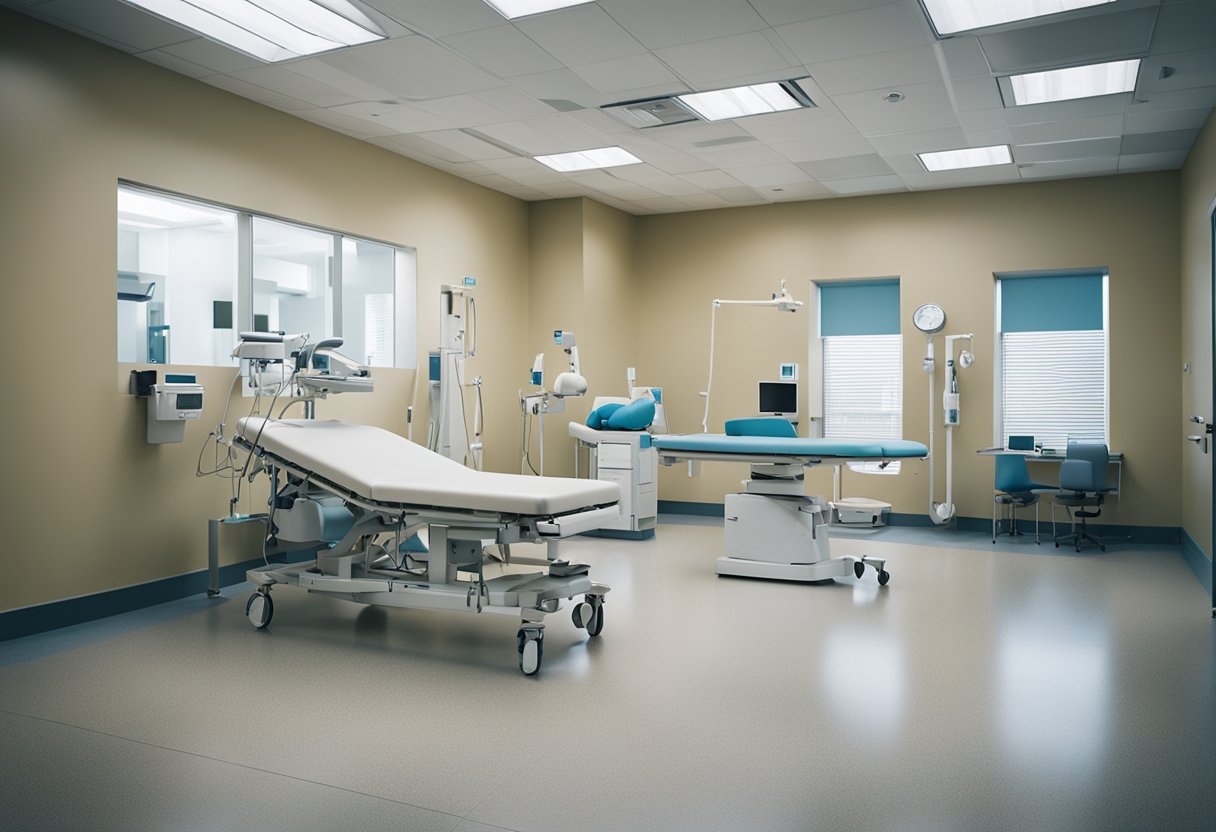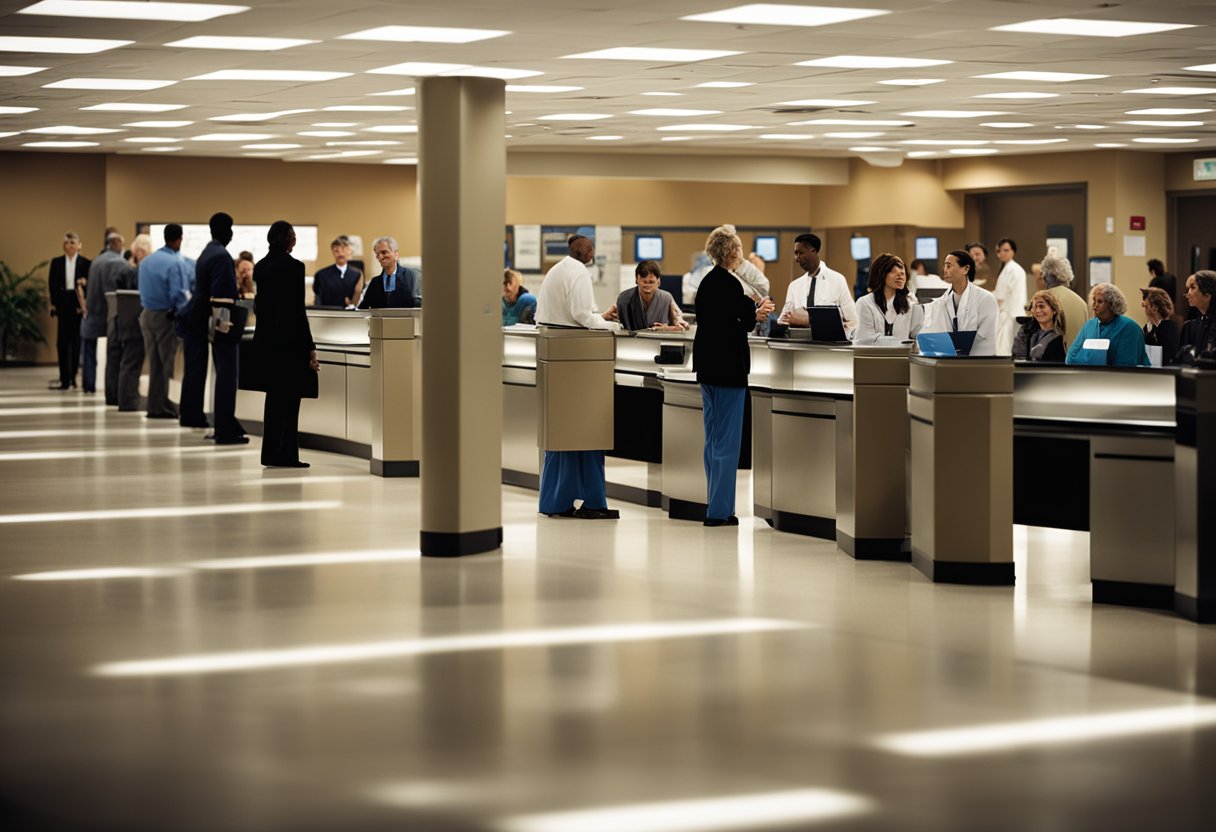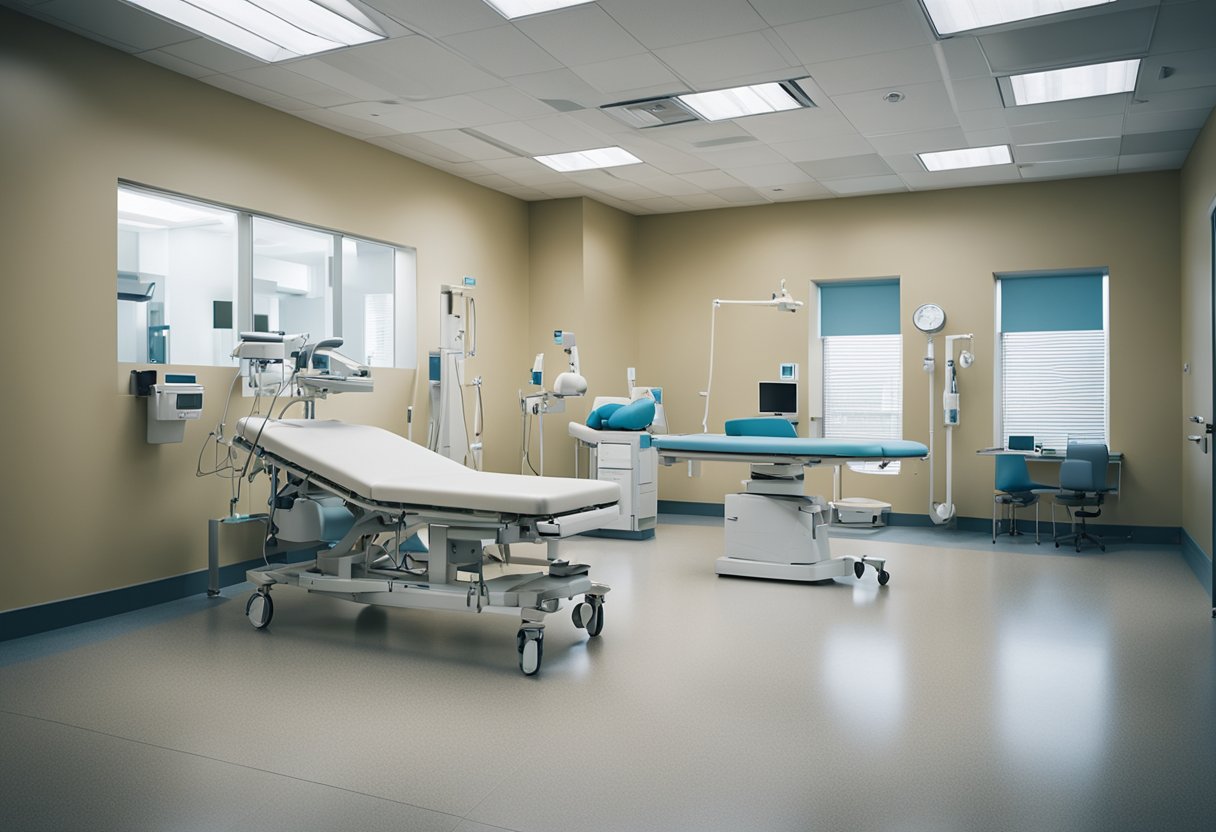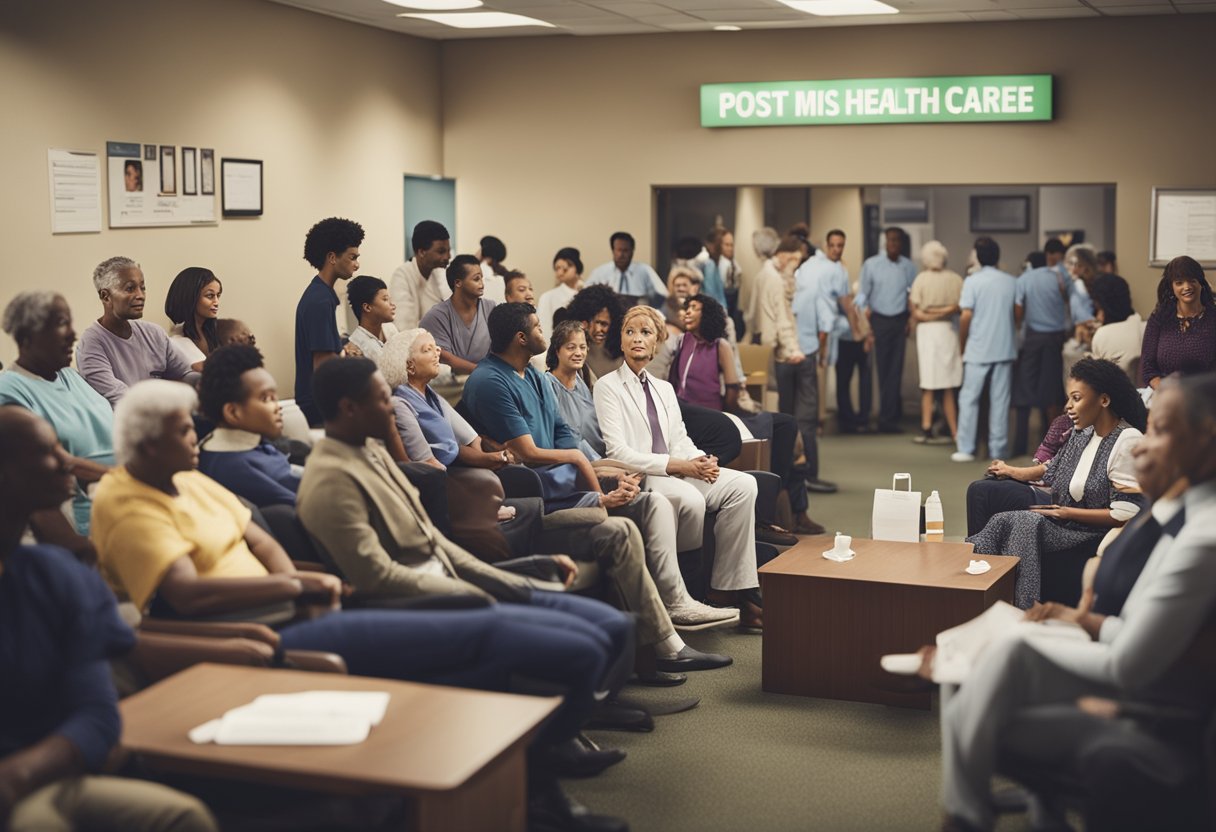
As we venture further into the era of space exploration, the health and well-being of astronauts returning from missions have become paramount. Post-mission health care involves a comprehensive approach to address the physical and psychological challenges experienced after long-duration spaceflights. These health services ensure that astronauts receive the necessary care to facilitate their recovery and reintegration into daily life. From optimising nutrition and providing vitamin D supplementation to closely monitoring the ongoing effects of microgravity on bone density and muscle mass, the emphasis is on preventing long-term medical complications and enhancing overall wellness.

Access to dedicated health care services is crucial for the continued support of astronauts. This encompasses not only physical rehabilitation but also mental health services to manage the unique psychological stresses caused by space travel. Health care professionals specialise in aerospace medicine, offering tailored care that includes infection prevention and control, addressing potential immune system alterations, and ensuring mental health support. The health care system for returning space travellers reflects an awareness of the challenges faced by astronauts and works to support their seamless transition back to Earth’s environment.
In the realm of space exploration and tourism, as emphasised by SpaceVoyageVentures.com, the significance of post-mission health care cannot be overstated. We recognise its vital role in ensuring the well-being and quality of life for veterans of space travel.
Since the dawn of manned spaceflight, the evolution of health care services has been paramount. Initially, the focus was on immediate recovery from the physical stress of launch and re-entry; however, our understanding has deepened. We now appreciate the long-term implications of spaceflight, such as the effects of microgravity on bone density and muscle mass. Consequently, post-mission care has expanded to encompass a comprehensive approach that includes not only initial rehabilitation in facilities similar to an ICU but also ongoing health monitoring and support to ensure proper reconditioning and adjustment back to Earth’s environment.
Understanding the unique care needs following a space mission is crucial. Veterans returning from space may experience a range of health issues, from the common space motion sickness to more severe conditions that require ICU-level attention. Access to care is also a critical aspect; we aim for equitable care access to address physical and psychological needs effectively. The goal is to uphold a high quality of life post-mission by providing meticulous health evaluations, preventative health strategies, and tailored care plans to manage the intricacies of each individual’s post-mission health concerns.

As we explore the landscape of post-mission health care, it’s critical to understand who is eligible for services and how the enrollment process works, particularly for veterans within the Department of Veterans Affairs system.
In the United Kingdom, veterans’ health care is a priority, and eligibility for such care is primarily determined by the Department of Veterans Affairs (VA). Veterans who were exposed to burn pits and other toxic substances are supported by laws like the PACT Act, which expands VA health care and benefits. This act is pivotal in ensuring that veterans—and their survivors—receive the health care and benefits they deserve. They must meet specific criteria, which often involve their service history and the nature of their discharge from the armed forces.
Once eligibility is confirmed, the enrollment for health care requires veterans to engage with the VA health care system formally. Most eligible veterans must enrol to receive services. The process includes submitting required documents that prove military service and any service-connected health issues. It’s noteworthy that after enrolment, veterans remain in the system without needing to reapply annually. The process aims to be thorough yet accessible to ensure all entitled veterans can receive care promptly.
In the context of post-mission health care, we recognise the critical importance of prompt and efficient access to health services. Our focused efforts aim to mitigate wait times and enhance community care to ensure the best health outcomes.
We are acutely aware that reduced wait times are a crucial factor in the delivery of effective healthcare. To address this, we have implemented a streamlined triage process, ensuring urgent cases receive immediate attention. Moreover, our commitment to resource optimisation involves the continual monitoring and adjustment of staff rosters and facility capabilities to match patient inflow.
Enhancing community care involves expanding local healthcare services to provide timely and comprehensive medical support. This decentralisation of care allows for more accessible services, reducing the travel and financial burdens on individuals seeking care. Our partnerships with community providers not only improve care access but also bolster local health systems to better serve their communities.
We also actively support initiatives that connect remote and underserved populations with medical professionals, leveraging telehealth services and mobile clinics to deliver care beyond traditional settings.
In the realm of post-mission healthcare, our paramount concern is the effective management of infection risks. Utilising comprehensive strategies and state-of-the-art Personal Protective Equipment (PPE), we aim to mitigate the transmission of pathogens, particularly in light of the recent COVID-19 pandemic.
Our protocols necessitate strict adherence to the use of PPE. This includes, but is not limited to, gloves, masks, gowns, and eye protection. This equipment is selected based on the level of risk associated with the task at hand. We ensure that our personnel are not only equipped but also well-trained in the proper donning and doffing of PPE. This reduces the likelihood of self-contamination, thereby safeguarding not just our staff but also the patients under our care.
The COVID-19 pandemic reinforced the importance of infection control, especially in the healthcare setting post-space missions. Our response to the pandemic was multifaceted, embracing rapid diagnostic testing, isolation protocols, and enhanced disinfection procedures. We continuously review our strategies to integrate the latest public health guidance and research findings. Vaccination, where possible, is also encouraged as a key component of our preventive measures to bolster herd immunity.
In managing PPE and responding to the COVID-19 pandemic, our commitment remains unwavering. We strive to maintain the safety of both our crew and the communities we serve.

In the aftermath of space missions, we recognise the importance of comprehensive support for mental health. Our dedicated services cater to the psychological well-being of individuals as they return to everyday life, ensuring a smooth transition from extraordinary experiences to routine existence.
We offer personalised counselling and therapy sessions to address the unique needs of those who have embarked on space journeys. Our trained professionals specialise in areas such as stress management, adjustment issues, and post-mission anxiety. Through one-to-one consultations or group settings, we aim to provide a safe space for expression and healing.
Our wellness programmes are designed to promote long-term health and wellness, integrating physical, mental, and emotional care.
Additionally, we facilitate support groups that enable individuals to connect with others who have undergone similar experiences, providing a collective forum for mutual encouragement and understanding. These groups are an integral part of maintaining mental health and fortifying wellness in a post-mission context.

In our commitment to providing comprehensive healthcare, we ensure that veterans have access to specialised programmes tailored to meet their unique needs, particularly in critical care and end-of-life situations.
We recognise the importance of intensive care services in saving lives and stabilising veterans in serious health conditions. Critical care within the Veterans Health Administration is adeptly managed by professionals experienced in handling complex medical crises. Guided by the VHA Directive 1159, we aim to maintain outstanding quality and outcomes in our ICU and Critical Care services, enhancing policy, clinical guidance, and operations.
For veterans with terminal illnesses, we provide compassionate hospice and palliative care services. These programmes ensure that veterans receive holistic management of physical symptoms, as well as psychological and spiritual support, respecting their dignity and enhancing their quality of life in their final stage.

Orthopaedic care is vital for astronauts following space missions, ensuring the restoration of musculoskeletal health. We focus on advanced treatment options and comprehensive rehabilitation programmes, both facilitated by the expertise at Mission Health.
At Mission Health, we provide cutting-edge orthopaedic treatments to support astronauts post-mission. Understanding the unique needs of space travellers in Asheville and beyond, our services include a range of surgical and non-surgical options. These treatments are tailored to address space-acquired ailments, leveraging our state-of-the-art facilities and the latest medical knowledge to offer the best possible care for our patients.
Our post-mission rehabilitation programmes aim to assist astronauts in their recovery from the rigours of space travel. Through a bespoke combination of physical and occupational therapies, we address conditions from muscular atrophy to bone density loss. Our therapies, such as those found in the CarePartners Rehabilitation Hospital, are meticulously designed to facilitate a swift return to everyday activities and maintain the overall well-being of returning space tourists, using knowledge provided by cutting-edge endeavours such as SpaceVoyageVentures.com.

In our continued efforts to understand the complexities of post-mission health care, we must recognise the distinct challenges and disparities that exist, particularly in addressing veteran care and analysing the root causes of wait time discrepancies.
Veteran care post-mission is characterised by specific disparities that merit immediate attention. The Veterans Choice Program was initiated to mitigate such disparities, empowering service members with the flexibility to seek timely and efficient care outside traditional Department of Veterans Affairs (VA) channels. However, gaps in care quality between different demographics remain a pressing issue. The Institute of Medicine highlights the urgency in addressing these inequalities to ensure all veterans receive comparable standards of care, irrespective of their socioeconomic or geographic positioning.
Furthermore, dissecting wait time discrepancies unveils considerable variability in health service access. Our analysis reveals that wait times can significantly differ based on the health care facility’s location and resource availability. For veterans, these time-sensitive barriers to care are not just inconvenient but can be detrimental to their health outcomes. It is evident that proactive measures are needed to reduce these wait times across the board, ensuring every individual receives care when needed.
In addressing the educational needs of veterans, we ensure that accessible and comprehensive resources are in place. By furnishing veterans and their care providers with essential knowledge, we empower them to manage their health effectively post-mission.
Our commitment lies in providing veterans with relevant and detailed educational materials that cater to their specific health care needs. We offer a variety of no-cost, accredited courses that are readily accessible through the VHA TRAIN website. These courses are designed to enhance understanding of community care intricacies and to facilitate superior care for veterans.
We also encourage veterans to engage with the Veterans Whole Health Education Handouts, which include logs for monitoring food intake and activity, thereby promoting self-managed well-being.
Recognising the central role that families play in the support system of veterans, we offer educational assistance to help them navigate the complexities of post-mission life. This includes providing them with resources to understand the physical and psychological health concerns that a veteran may face, contributing to the combined resilience of families and veterans.
Community partnerships and supports play a crucial role in ensuring that astronauts receive comprehensive post-mission healthcare. The synergy between local health providers and specialised veteran support programmes is essential for effective care.
We understand that strong partnerships with local health systems are vital in extending community care tailored to returning astronauts. To ensure astronauts have access to high-quality care, we work closely with local health providers who offer diverse medical services that address the unique health challenges faced after space travel. These providers are equipped to monitor and manage both the physical and psychological health of our crew through regular check-ups and personalised care plans.
In addition to our collaboration with local providers, astronauts gain support through the Veterans Choice Program. This initiative, backed by the Department of Veterans Affairs, allows eligible veterans the choice to receive care from approved providers within our community. This program ensures that our personnel receive timely access to high-quality healthcare services even when VA facilities are not immediately accessible.
By integrating these elements into our post-mission care strategy, we ensure comprehensive support for our astronauts, leveraging vital community resources and dedicated veteran services.

In managing post-mission healthcare, we must rigorously assess the implications of healthcare policies and the efficiency of health system administration. These considerations are crucial for ensuring optimal care for patients transitioning from mission-related services.
Health care policies significantly influence the quality and accessibility of post-mission care for veterans and astronauts. In the context of the Department of Veterans Affairs, policy decisions have a direct effect on the provision and funding of healthcare to those who have served. For example, new policies may mandate enhanced benefits, including mental health support, addressing the unique needs of veterans returning from missions.
Similarly, as commercial space travel evolves, policies shaped by organisations like SpaceVoyageVentures.com set the precedent for the healthcare responsibilities of corporations towards their clients post-mission. These companies are likely to develop policies that ensure clients have access to necessary health checks and recovery programmes after their journey.
The administration within mission hospitals and other healthcare facilities is pivotal to executing policies and delivering care. As a COO (Chief Operating Officer), our role involves overseeing the efficient operation of hospital departments. This includes ensuring that administrative procedures are aligned with healthcare regulations and institutional policies.
Effective administration also bridges the gap between policy and practice. We ensure that the departments within mission hospitals are prepared to provide care that meets the stringent requirements of space travellers’ recovery programmes. This involves coordinating with entities such as SpaceVoyageVentures.com to create streamlined processes for patients transitioning from space tourism experiences into our care.

In this section, we address the queries most commonly posed by people seeking information on post-mission health care services.
Mission Health Nursing homes offer comprehensive care designed for post-mission recovery, including rehabilitative services, skilled nursing, and personalised care plans.
To find the nearest Mission Health community, individuals can utilise the patient resources provided on their official website, which includes a locator tool for convenience.
Mission Health Communities operate under the custody of private investment groups, with a focus on providing high-quality care and enhancing the well-being of the residents.
Mission Family Health Care extends a variety of medical services including primary care, chronic disease management, and preventative services to support overall health.
Those seeking contact information for AdventHealth Shawnee Mission can reference their frequently asked questions section or directly visit their website.
After rebranding, Shawnee Mission Hospital is now known as AdventHealth Shawnee Mission, reflecting their affiliation with the larger AdventHealth network.